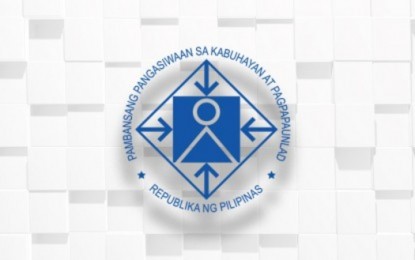
MANILA – The National Economic and Development Authority (NEDA) cited on Thursday several initiatives that should be pursued in the second year of the Philippine Development Plan's (PDP) rollout.
In a statement, the NEDA said these include enhancing tax administration and enacting revenue-generating measures to hit the country’s fiscal targets; aggressively promoting trade and facilitate strategic investments in growth drivers while addressing underspending; ensuring the availability, accessibility, and affordability of food; and improving access to quality education and recover learning losses.
These key actions were included in the Philippine Development Report (2023) which was released to the public on Wednesday.
The PDR reports on the major programs, projects, and policies begun and implemented by various agencies in the past year and also evaluates the country’s performance concerning the outcome indicators identified in the PDP 2023-2028 and includes updates on the Marcos administration’s legislative agenda.
In particular, the report called for the prompt enactment of new tax measures which include excise taxes on sweetened beverages, VAT on digital service providers, and a new fiscal regime for mining.
The report said these measures are expected to generate over PHP900 billion in additional revenues from 2024 to 2028.
The NEDA said that based on the PDR, other initiatives that should be implemented include building sustainable and well-planned communities through stronger collaboration among government agencies, local government units (LGUs), and the private sector and enhancing the digitalization of government processes, making goods and services more responsive and accessible to the public.
The PDR noted that the Philippine economy was already back to its pre-pandemic level last year.
Revenue and tax efforts also remained robust while deficit and debt remained manageable.
The government, through the Bangko Sentral ng Pilipinas, broadened the financial inclusion and paved the way for wider digital payments adoption.
“We made significant strides in laying the groundwork during the first full year of the PDP. As we carry on with our work and programs in 2024, we hope that the PDR 2023 will serve as a valuable tool for policymakers, the private sector, and members of civil society to pursue the full implementation of the PDP," NEDA Secretary Arsenio Balisacan said.
"This report presents the lessons we have learned, and outlines plans of action to ensure we remain on track to meet our goals by 2028,” he added.
Launched last year, the PDP 2023-2028 is a six-year comprehensive development strategy of the Marcos administration, which lays out the roadmap to recover from the effects of the pandemic.
Included in the agenda are the following strategies such as accelerating digital transformation; improving connectivity; strengthening the interlinkages between the agricultural and industrial sectors with the services sector; establishing a dynamic innovation ecosystem; intensifying public-private partnerships; and enhancing the role of LGUs as partners in development.
"We will heed the call of President Ferdinand R. Marcos, Jr. for the government to be swift and punctual in delivering services and implementing projects. We will work with all our colleagues in the government to accelerate the implementation of the Philippine Development Plan in order to sustain the momentum and solidify our gains,” Balisacan said.
Before its public release, the PDR 2023 was presented to President Marcos and members of the Cabinet during the 13th NEDA Board meeting on Jan. 26, 2024. (PNA)
====
logo
